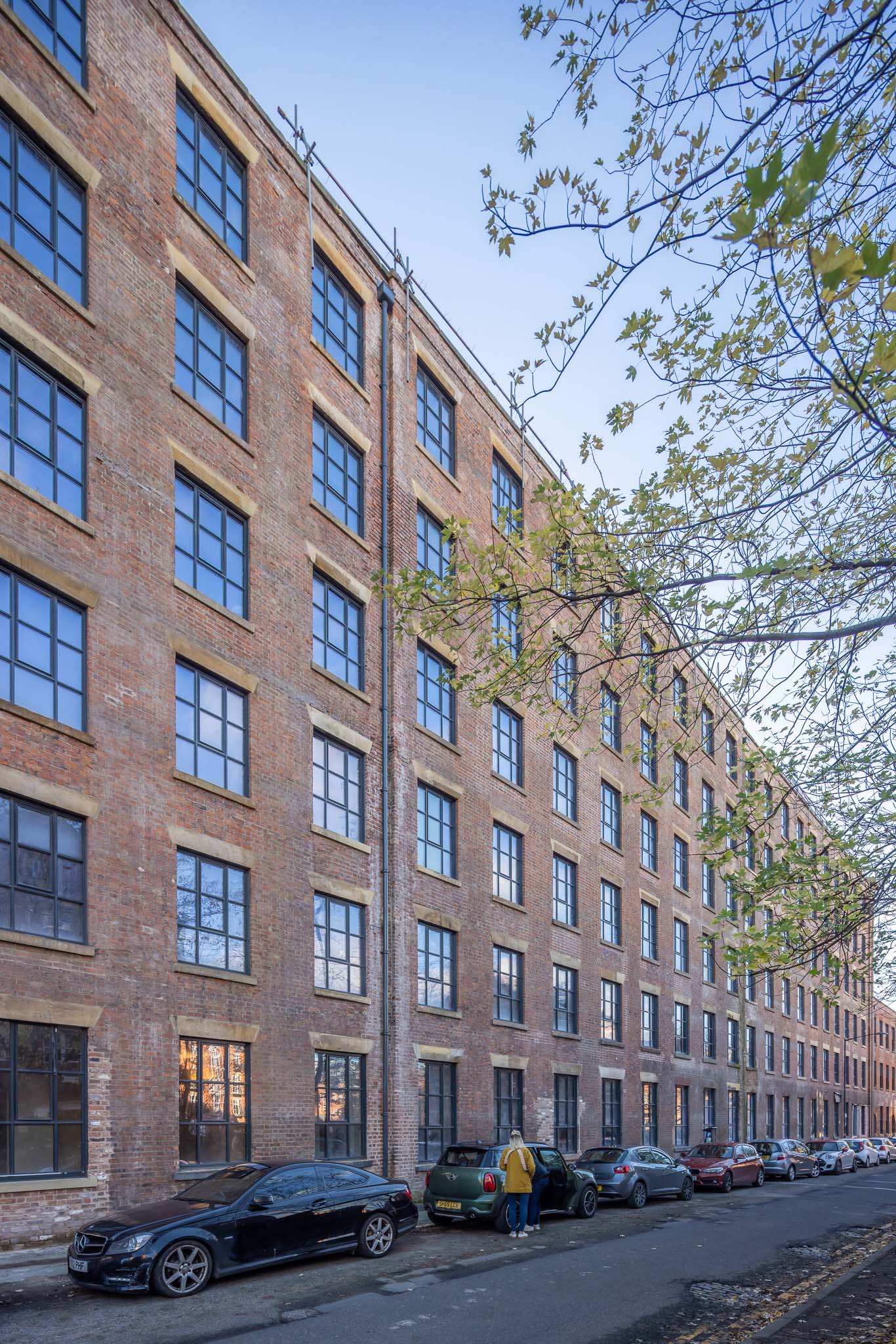
Before aluminium’s emergence as the material of choice for high performance window and door systems, back in the 1920’s steel framed windows and doors were extensively used across the globe in both commercial and residential projects. These single glazed systems consisted of solid rolled steel sections, welded together, hot dip galvanised and then painted. Set in putty, glass was fixed into position using a nib and bead arrangement. Due to the limitations in the size of sheet glass at the time, large windows could be created with multiple mullions and transoms, which typifies this style of window.
When aluminium window and door systems entered the market in the 1940’s, steel window systems rationalised their range of profiles to compete with aluminium and since then the ‘W20’ range has become synonymous with steel framed window specifications. Due to their age, these slim systems have become collectively known as ‘Heritage’ windows.
One of the benefits of this ‘heritage’ style is that installations offer a large expanse of glass due to their slim sight lines for any given opening, allowing good levels of natural daylight to enter a building. Steel framed window systems are still used today in new and renovated properties, however, slim aluminium systems continue to gain popularity as they can offer several advantages over their steel counterparts.
Performance is a key specification benefit, whilst aluminium also offers a slim sightline, it is designed with a deeper frame that accommodates efficient polyamide thermal breaks and accommodates wide insulated glazed units. Not restricted to the limitations of a rolled steel profile, an aluminium profile can contain undercut grooves for the installation of high performance glazing gaskets and opening light weather seals. With these efficient thermal breaks and EPDM seals, these slim aluminium systems offer high thermal performance for refurbishment and new properties.
As with steel systems, aluminium systems can also be made into single and double doors sets, complete with sidelights, with both open in and open out options. Together with open out window vent options, aluminium systems can also include open in, tilt turn options complete with multipoint locking arrangements for high weather performance.
One system that is being specified on refurbishment projects is Aluprof’s MB-SLIMLINE which offers high thermal performance, down to a Uw of just 0.8 W/(m2K) with sightlines much slimmer than a traditional aluminium window. MB-SLIMLINE offers two vent frame options, a visible vent frame and a hidden vent frame. The hidden vent frame is situated behind the glass, so from the outside the vent frame appears to be invisible. Both vent frames are designed with ‘Euro’ grooves which allows a wide range of hardware options to be fitted to the opening windows. Three recently completed projects in Manchester demonstrate this system in use:
Positioned at the heart of the city centre, adjacent to the ‘Village’ and ‘Piccadilly’, the Kampus development has been created following the consolidation of Manchester’s Metropolitan University faculties. The project sees the creation of a vibrant and creative neighbourhood, distinguished by its mixed use, but with significant residential accommodation in addition to new leisure and retail outlets. The MB-SLIMLINE system used on this project utilises the visible vent option.
The luxury apartment development at One Silk Street is a Vincent Kompany backed project in Manchester offering 24,000 sq ft of offices alongside 75 apartments. The nine-storey building was designed by Falconer Chester Hall and Mecanoo for M4nchester Two. Alongside 24,000 sq ft of offices on the ground floor there are 23 one bed, 47 two bed, and five three bed apartments on the upper floors. The completed project sits within the Ancoats conservation area, close to Oldham Road, and faces south onto a grade two-listed Victoria Square tenement block. The MB-SLIMLINE system used on this project utilises the hidden vent option.
North of Piccadilly in Manchester once accommodated a thriving textile industry and some of these buildings have been restored into residential apartments. Crusader Mills dates from the late 1840s and includes a number of listed cotton spinning mill buildings. The special architectural interest of Crusader lies in its scale, industrial character and the aesthetic effect of the repetitious bays and windows along its four storey facade. The MB-SLIMLINE system used on this project utilises the visible vent option.
A wide range of standard profiles offered by the MB SLIMLINE System allows specifiers to create a window or door design which is in keeping with a refurbishment project, or that can emphasise a modern design concept from the outset. Aluprof UK offer specifiers guidance in the design and detailing of these unique window systems.
Aluprof are proud to be one of Europe’s largest aluminium systems companies. Specification support is available through the company’s website at aluprof.co.uk, directly from their UK head office in Altrincham or from their London office at the Building Design Centre by phoning +44 (0) 161 941 4005.




